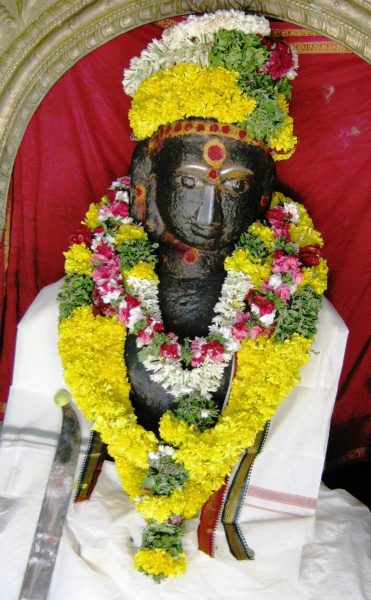
Main idol of Hindu temple in Salem, TN, is that of Buddha, rules Madras HC
The idol shows features of the Buddha, such as curly hair, ushnisha and elongated earlobe, said a committee report. The head was severed from the torso and glued together with cement and lime, and this was done with a minor error

Amid the ‘Shivling’ spottings and claims of mosques being built on ancient temples in the northern states, a vastly different situation has arisen in Tamil Nadu. A Hindu temple with a local deity has been under the scanner, and the High Court has ruled that the idol it houses was originally a sculpture of the Buddha.
The Madras High Court recently directed the Tamil Nadu Archaeological Department to take control of the Thalaivetti Muniappan Temple in Salem district after the department’s inspection report revealed that the idol depicts several mahalakshanas (key features) of the Buddha.
Justice N Anand Venkatesh passed the orders recently on a writ petition filed by an activist P Ranganathan and the Buddha Trust in Salem in 2011. In the petition, Ranganathan had sought the court to direct the Archaeological Survey of India (ASI) to inspect the statue at Thalaivetti Muniappan Temple and submit the report to the court to find its identity and antiquity.
Also read: Tamil Nadu home to most temples in India, says survey
Based on the report, he had also asked the government to restore the land on which the temple is located, to the Buddha Trust.
During the course of the case, the judge had directed the Archaeological Department Commissioner to inspect the statue at the temple and file a report. According to the report, the figure was in a seated position known as “Ardhapadmasana” on a lotus pedestal and the hands are posted in dhyana mudra.
Also read: Devotees throng chess-god temple in Tamil Nadu as Olympiad takes off
“The head shows lakshanas of the Buddha, such as curly hair, ushnisha (three-dimensional oval at the top of the head) and elongated earlobe. Urna (dot) is not visible on the forehead. The head was severed from the torso, which were glued together with cement and lime mixture a few years ago. However, due to human error, the head was not positioned properly on the torso and, consequently, the head is slightly tilted towards the left,” the report said. The name of the deity comes from this — ‘thalavetti‘ in Tamil means one who’s head has been severed. Muniappan is a local deity.
The archaeological committee that inspected the sculpture came to the conclusion that the sculpture was that of the Buddha.
Also read: State role in Tamil Nadu temples: Dalit experiences add to the debate
“After inspecting the sculpture and carefully examining the available archaeological and historical evidence at our disposal, the committee collectively expressed their opinion that the sculpture depicts several mahalakshanas of the Buddha,” the report read.
Based on the report, the court felt that it would not be appropriate for the Hindu Religious and Charitable Endowments (HR&CE) Department to treat the sculpture as Thalaivetti Muniappan. “In view of the categorical report submitted by the archaeological department, the assumption of the HR&CE Department that it is a temple is no longer sustainable and the control must go into the hands of some other authority,” the court said.
Also read: How wristbands keep caste lines alive among students in Tamil Nadu
The judge also ordered the restoration of the original state of the sculpture and observed that permitting the HR&CE Department to continue to treat the sculpture as Thalaivetti Muniappan will not be appropriate and it will go against the very tenets of Buddhism.
He directed the commissioner of the Archaeological Department to take control of the property and ensure that no other ceremonies were performed for the sculpture of Buddha. The judge also said that a board shall be erected inside the property saying the sculpture is that of the Buddha, and that people can be permitted to visit the place.

